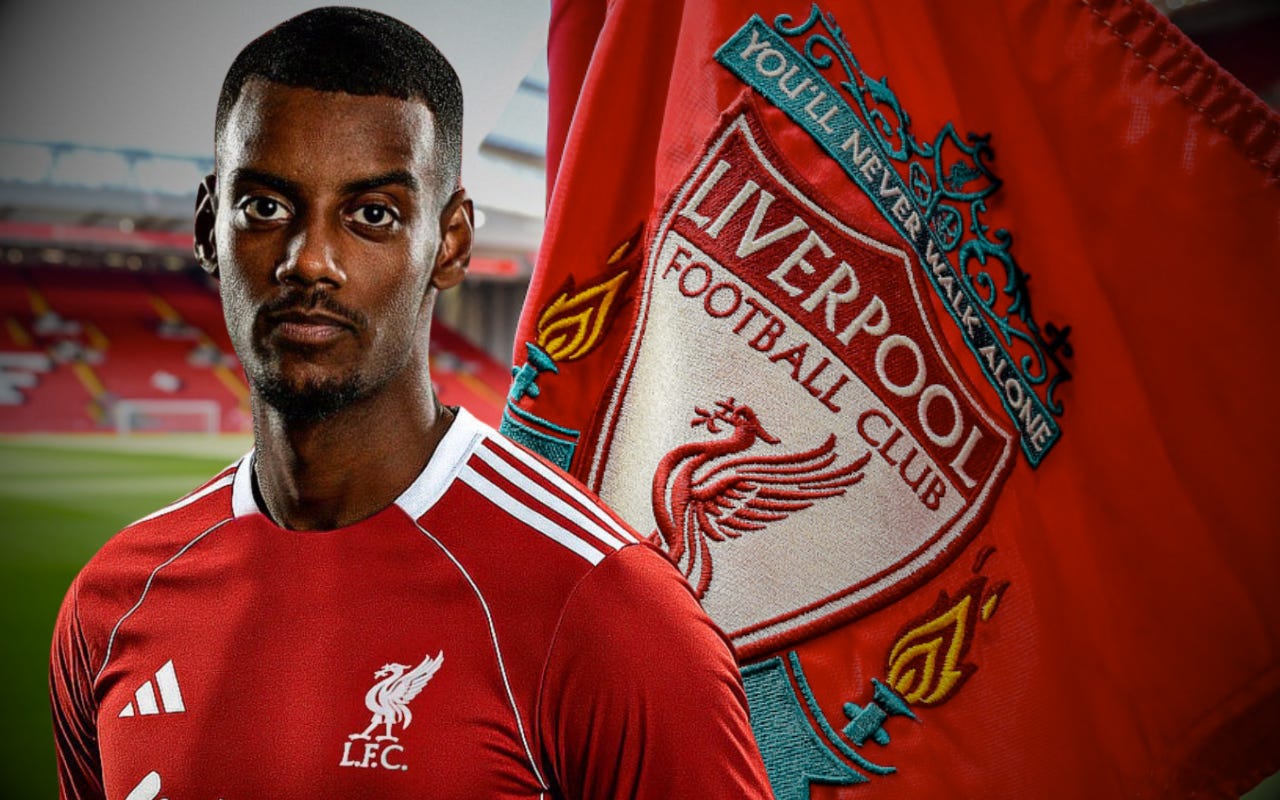Isak Joins Liverpool and Exposes Luke Edwards’ Summer of Spin
Newcastle tried to bluff, but Liverpool were never going to fold
Liverpool have signed Alexander Isak for £130 million. It is the biggest transfer in British football history. It is also the most symbolic. This deal was not only about one striker changing clubs. It was about a shift in power across English football. It was about a club behaving like the biggest in the country. And it was about the total failure of another institution to understand what football has become.
This move captures everything that has defined Liverpool’s summer and Newcastle’s decline. It exposed failures in leadership, weaknesses in the media, and a deep misunderstanding of what it means to live inside the food chain. This is about how Liverpool acted like a modern superclub. And how Newcastle acted like amateurs.
Liverpool Move Like Kings
You don’t break transfer records by mistake. Liverpool wanted Isak. They knew it, Isak knew it, and anyone watching closely this summer should have known it too.
From mid-July, we at Anfield Index were aware that the key players from Liverpool and PIF were working on the deal. On 19 July, we received a tip that Isak would not travel with Newcastle for their pre-season tour in Asia. We tracked private flights and confirmed a summit meeting where the deal’s framework was being hammered out. Then on Saturday morning there was another meeting in London for the executives at both clubs to sign-off on the deal, Jan Åge Fjørtoft was the only pundit to even acknowledge it, and faced ridicule for doing so. That silence from the national press spoke volumes.
Liverpool have not behaved like this in years. Not with this much clarity. Not with this level of calculated aggression. Arne Slot, in his second summer in charge, is overseeing a club that now moves with sharp elbows and sharper strategy. Liverpool are champions of England. And now they are building out from a position of dominance.
Isak is not just a high-scoring forward. He is a modern, intelligent, all-phase attacker. He scored 27 goals for Newcastle last season, behind only Salah and Haaland in the Premier League. He drags defenders wide, drops deep, attacks centrally, and finishes first time. He is a player Liverpool have feared and admired. Now he’s theirs.
Newcastle’s Collapse in Real Time
Newcastle spent the summer telling anyone who would listen that Isak was not for sale. That he was under contract until 2028. That they wouldn’t even entertain a discussion under £150 million. They talked like a club in control. They weren’t.
This saga was lost long before Isak published his public statement saying the relationship had broken down. The moment Newcastle pulled a new contract offer earlier in the year, they’d chosen the path they were now walking. They refused to pay him what a world-class striker earns. They refused to acknowledge he had outgrown the project. They refused to prepare for the inevitable.
There was no sporting director in place. No CEO. The manager, Eddie Howe, was left in the dark and left to carry the weight of a situation he couldn’t fix. Ownership was silent. Internal decisions were ad hoc. Public messaging was delusional. And Isak, their best player, trained alone in Spain.
It was naive to think this could be salvaged. You cannot reintegrate a player who has stopped believing in the club. Who has, frankly, stopped trusting it. Newcastle tried to pretend everything was fine. But they knew. Liverpool knew. Everyone inside football knew. The question was never if he would leave. It was when Newcastle would stop lying to themselves.
Luke Edwards and the Collapse of Credibility
No one emerged from this saga with less credibility than Luke Edwards.
As Newcastle’s man at The Telegraph and a regular contributor for BBC Sport, Edwards held a position of influence. That influence was squandered across the summer in spectacular fashion. From the beginning, he positioned himself as the authority on the Isak situation, insisting the player was not for sale and that Liverpool had no realistic path to sign him. At every step, he treated dissent with hostility.



